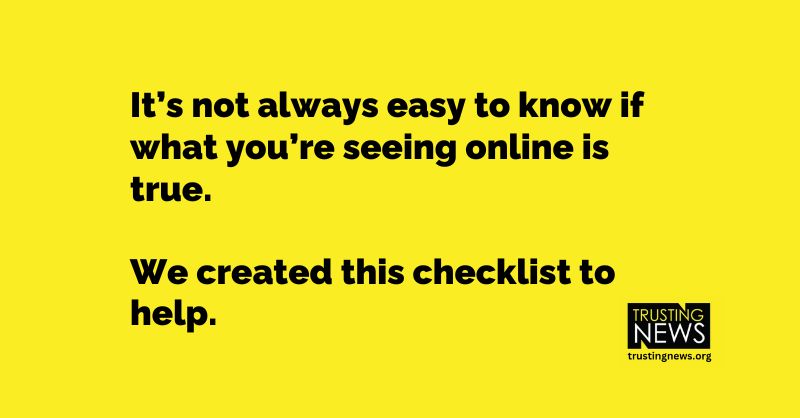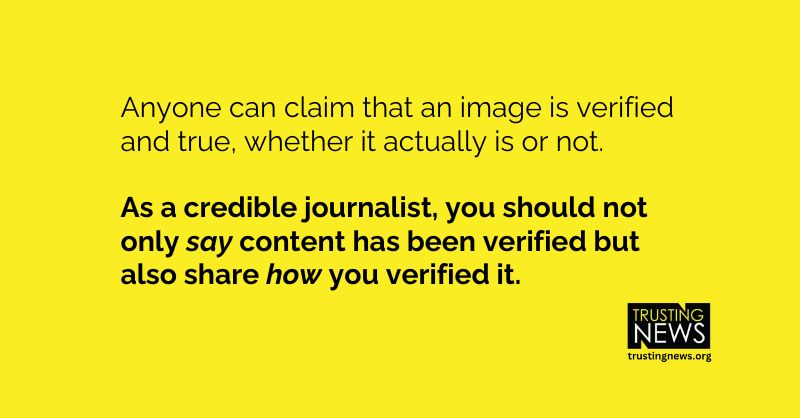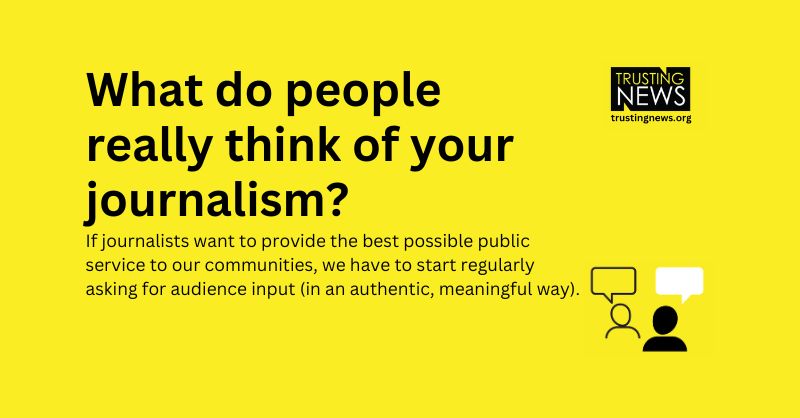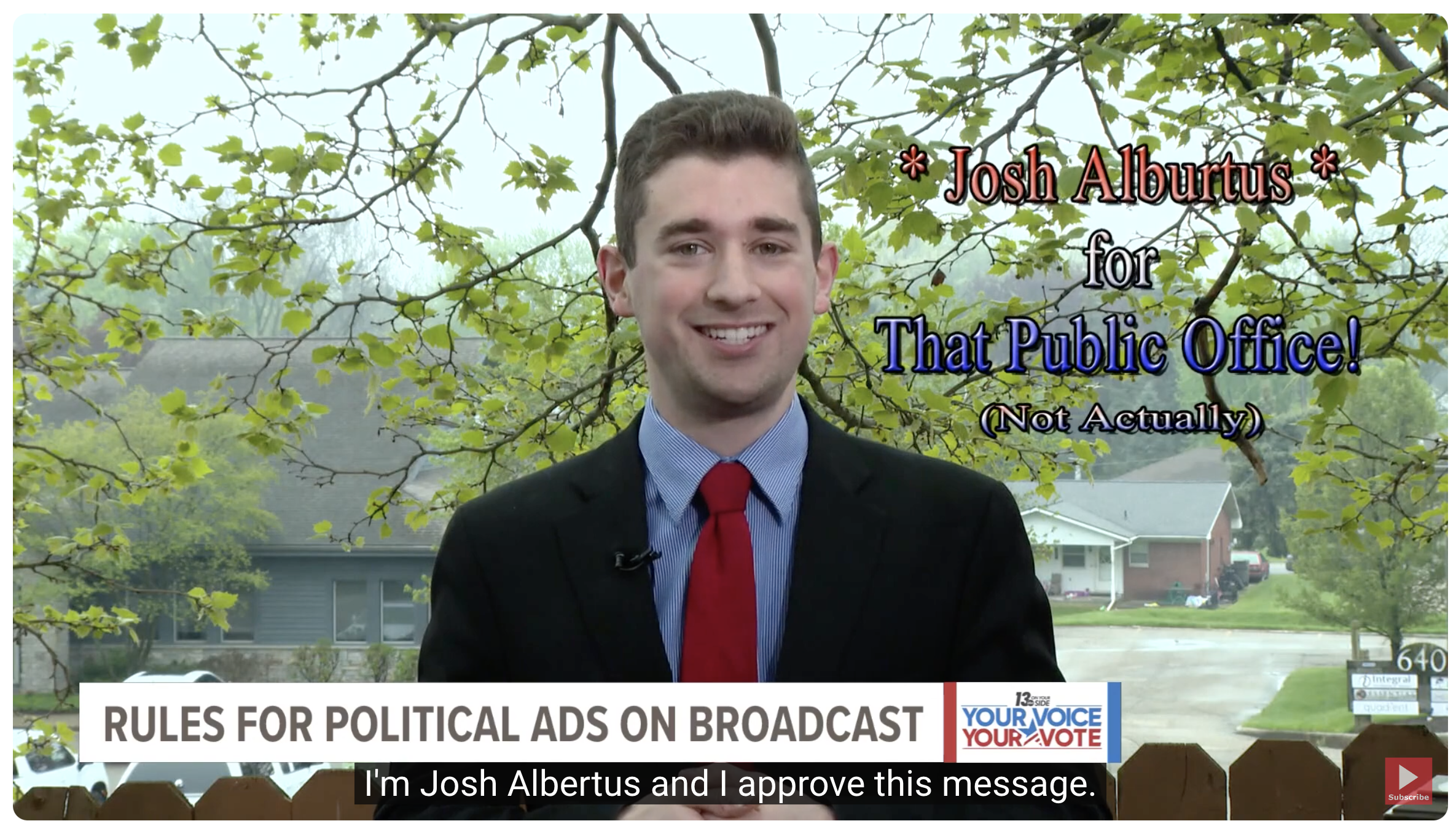
Trusting News director Joy Mayer recently shared this post from a Facebook group she’s a part of, where someone suggested a local news station should lose its broadcast license for running a specific political ad. In the comments under the post, people said the newsroom should be sued for making false statements and accused them […]
Explain why news outlets run political ads
Trusting News director Joy Mayer recently shared this post from a Facebook group she’s a part of, where someone suggested a local news station should lose its broadcast license for running a specific political ad.
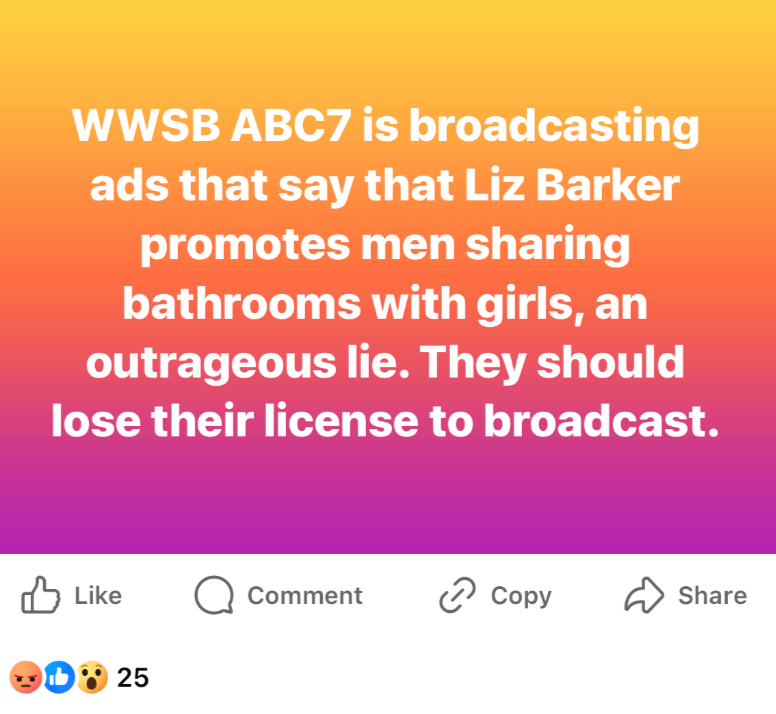
In the comments under the post, people said the newsroom should be sued for making false statements and accused them of promoting lies and propaganda.
A search of my own Facebook feed shows a handful of similar posts in my area along the lines of, how can XX news outlet share such terrible ads from XX candidate? Or, the news shouldn’t be airing these ads because the news should be factual and impartial.
Of course, many people don’t understand the FCC and how it affects what political ads stations can air — even ads that might contain misleading information. Instead, people make assumptions that either a newsroom is compromising their ethics and journalistic standards to make money off the ads, or that the ads back up the political beliefs or biases that exist in the newsroom.
This can lead to lots of confusion and distrust. Don’t let that happen. Instead, use this season where everyone is seeing (and probably getting annoyed by) political ads as an opportunity to increase your audience’s understanding of how the process works.
How newsrooms explain political ads
Here’s how station WZZM in Grand Rapids used an on-air segment to explain how political ads work.
Their journalist interviewed a communications professor about FCC rules, who explained why news stations are prohibited from censoring or editing many political ads, even if they might contain false or information.
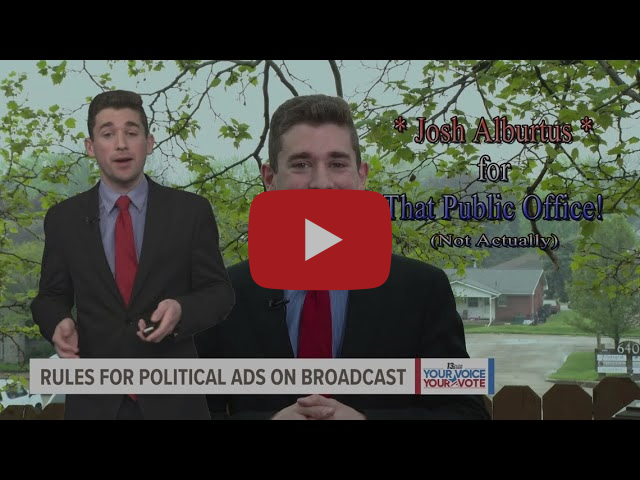
Here are some other other examples of how newsrooms have explained how political ads work.
- WCPO’s general manager Jeff Brogan answered viewers’ questions about how political advertising works for local TV stations. We particularly like the explanation of the FCC and how that impacts what political ads the TV station can air.
- Verify This, part of Tegna, used an on-air segment to explain whether or not political ads need to be factual, and how much control newsrooms have over ads.
- Here’s a column from Iowa Capital Dispatch that talks more about the money behind political ads, explaining how rates for political advertising work.
Answer these questions about political advertising
Whether on air, in print or online, don’t assume that your audience understands why you run political ads and whether you edit or fact-check them. Instead, take the time to explain how political advertising works by answering questions like:
- Why you run these ads, and what control your outlet has over which ads run. (You can pull information and link directly to this helpful FCC political programming fact sheet, as NPR did recently.)
- Whether you fact-check them before publishing or airing them (even if you can’t censor an ad, do you provide separate fact-checks of ads for people to read?).
- How you decide where to place them online, in print and on air.
To level up: Get transparent about any money your newsroom receives from political ads and then explain how that money does or doesn’t influence news coverage. If you pride yourself on editorial independence, use this as an opportunity to make that clear. (We have more guidance on how to explain how funding impacts coverage here.)
We’d love to see examples of how you’re doing this, or working to build trust with your election coverage more generally. Let us know by hitting reply, or reach out on LinkedIn or X.How have you explained your approach to fact-checking? Let us know here, on LinkedIn, X or email at info@trustingnews.org.

Project manager Mollie Muchna (she/her) has spent the last 10 years working in audience and engagement journalism in local newsrooms across the Southwest. She lives in Tucson, Arizona, where she is also an adjunct professor at the University of Arizona’s School of Journalism. She can be reached at mollie@trustingnews.org and on Twitter @molliemuchna.

